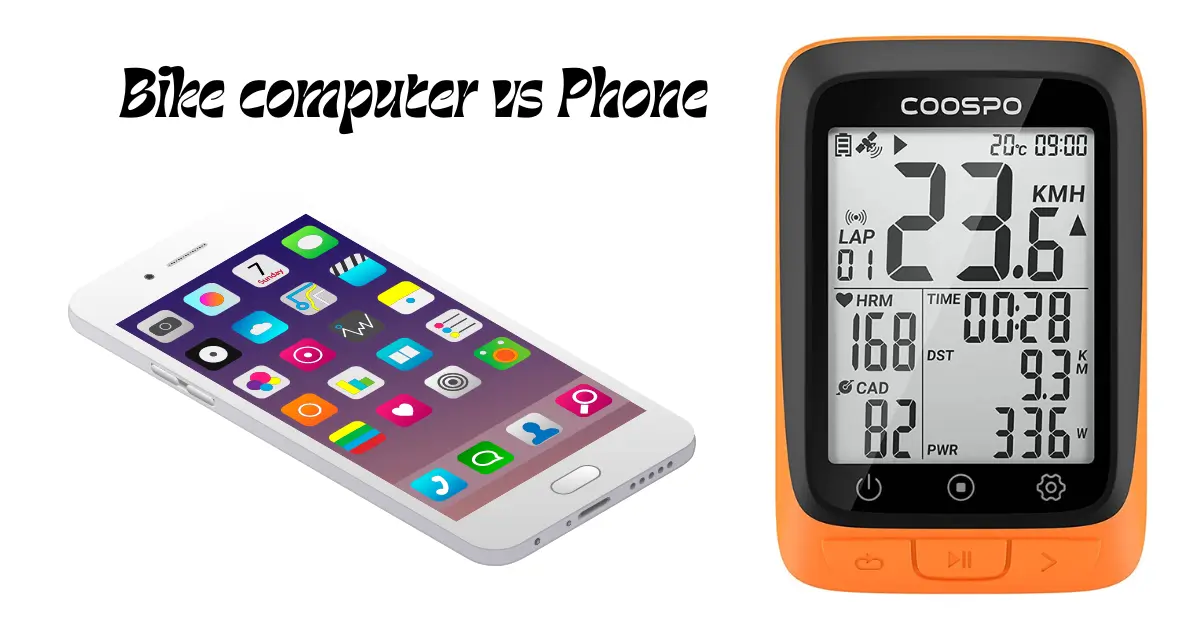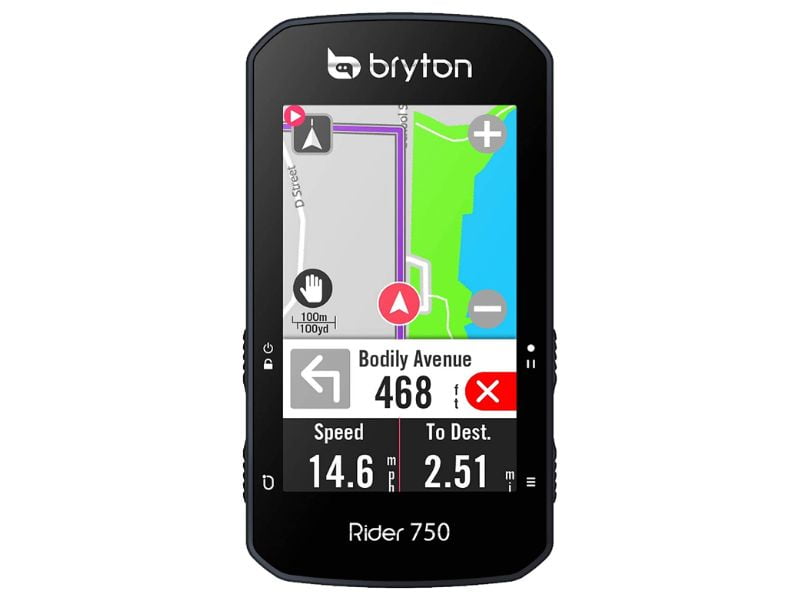Physical Address
304 North Cardinal St.
Dorchester Center, MA 02124
Physical Address
304 North Cardinal St.
Dorchester Center, MA 02124

The market share of bike computers is going to reach a number of around 577M by the end of 2023! Though this number was 542.5M by the end of the year 2021. The market is expected to grow by a number around 5% every year.
This rapid growth proves to us, the user count of bike computers is growing very fast. However, most of the features of a bike computer are also available in smartphone applications, In spite of that cycling enthusiasts always prepare cycling computers. Because Bike Computers are designed for long-distance road cycling.
As a cyclist, I always love bike computers, and even so, these days smartphones or smart watches could replace bike computers.
In this article, I will discuss the comparison between bike computers and mobile phones, and also try to come up with a decision on which is best or if both of the two technologies are the same!
A bike computer is a device that monitors every single piece of data while riding a bicycle. If you are in professional cycling and you need to monitor your speed, time, lap stats, cadence, heart rate, GPS location, and other data related to your rides then you will need a bike computer or a smartphone.
Some of the key features, you can utilize by having any of these technologies,

A bike computer is an especially designed and programmed device that tracks detailed data of cycling. The use of a bike computer is not bounded just to the cycling information but also it can measure physical conditions like heart rate, and blood circulation flow and show you the data. The main features of a bike computer are discussed below,
An invention that is developing beyond human imagination is the android phone or you might call it the smartphone. The work capacity of smartphones is increasing every day, a smartphone can replace a computer smoothly so it can also replace a bike computer in near future!
The facilities that a smartphone can offer you instead of a bike computer, are discussed below

The Similarities Between Bike Computers Vs Phones are:
Related: Rouvy vs Zwift: A complete overview of Rouvy vs Zwift App 2023
Bike Computer: Bike Computer prices start at $60 to $900
Smart Phone: Phone Prices start from $100 to $2000
Here are a few drawbacks of using a smartphone as a bike computer:
Battery life: Smartphones have shorter battery life compared to dedicated bike computers. This can be a problem for longer rides where the phone may run out of power.
Mounting: Smartphones need to be securely mounted on the handlebars, which can be challenging, especially in rough terrain. Some cyclists use a specialized phone mount, but it can be more difficult to install and remove compared to a simple bike computer mount.
Size and weight: Smartphones are generally larger and heavier than bike computers, which can make them less convenient to carry and handle while riding.
Durability: Smartphones are not as rugged as dedicated bike computers, and are more susceptible to damage from water, dust, and impact.
Interference: Smartphones emit signals, such as Wi-Fi and Bluetooth, which can interfere with GPS signals. This can affect the accuracy of the GPS tracking and lead to inconsistencies in the data.
Distractions: While using a smartphone as a bike computer, there’s always the risk of being distracted by incoming calls, texts, or notifications. This can be dangerous while cycling.
These are some of the drawbacks of using a smartphone as a bike computer. Ultimately, the choice between a smartphone and a dedicated bike computer will depend on the individual’s specific needs and preferences.
Before you end up the decision on using a bike computer vs a mobile phone, we should have a final look at the key comparison between using a dedicated bike computer and a smartphone application. I am arranging a table that might help you to decide which option is better for you,
| Facts | Bike Computer | Mobile or Smartphone App |
| Price | $60 to upOne-time installment to buy the device | $100 to up for phone$3 to 19/monthly for AppYou have to pay monthly or annually |
| Preferred For | Dedicated cycle racing or professional cycling | Casual cycling or hobby |
| Battery Life | Around 15 to 20 hours | Around 4 to 6 hours |
| Accuracy | This uses a built-in hardware sensor so provides more accurate data | Uses GPS tracking, and sometimes data are not relevant |
| Waterproof | Bike computers are waterproof | N/A |
| Body Size | 60 x 100 x 20 mm | 14.7 to 16.3 cm |
| Extra Features | Heart rate and calorie calculator | N/A |
| Weight | 35 to 100 Grams | 130 to 200 Grams |
| Setup Hassle | Builtin with clips or screw system | Requiring extra mobile mount |
Though dedicated bike computers and mobile applications both can provide the data of GPS, navigation, traveled distance, and speed records. We can not come to the conclusion that a mobile can replace the place of a bike computer. Because it depends on the user.
If you are a professional cyclist then you should go for the dedicated bike computer but if you do cycling as a hobby or for a test session then a phone or mobile app like Strava might be the best option for you.
Related: Bkool vs zwift : Pick The Best Apps 2023
It is clear that bike computers and mobile both can be used to measure your cycling speeds and keep location tracks. But in-depth analysis I have found that dedicated bike computers are more useful for professional cyclists like me.
For getting accurate counts and health information like heart rate and calorie brunt, long battery life, and hassle-free ride you should go for a bike computer.
I trust this article has been informative and beneficial in helping you make a well-informed decision for your cycling device. If you found it helpful, please don’t hesitate to leave a comment or share it with others who may also benefit. And if you have any further questions or concerns, I am available to assist you. Please feel free to reach out to me at any time.
Yes, smartphones can potentially replace bike computers, as many smartphones have built-in GPS and fitness-tracking features. However, it ultimately depends on the individual's needs and preferences.
The accuracy of a bike computer can vary depending on several factors, including the quality of the GPS receiver, the environment in which it is used, and the type of sensor it uses to track speed and distance. In general, high-end bike computers use high-sensitivity GPS receivers and other sensors that provide fairly accurate tracking of speed, distance, and other metrics.
Bike computers and smartphones can perform similar functions, such as tracking speed, distance, and route, but there are some differences in how they work. Bike computers typically use GPS and other sensors to track the movement of the bike and calculate various metrics. They are designed specifically for cycling and often have features like waterproofing, long battery life, and easy-to-read displays that make them well-suited for the sport.
Smartphones also have GPS and fitness-tracking capabilities, but they are not specifically designed for cycling. While they can be used for cycling, they can also be used for a variety of other tasks, such as making phone calls, sending text messages, and accessing the internet.